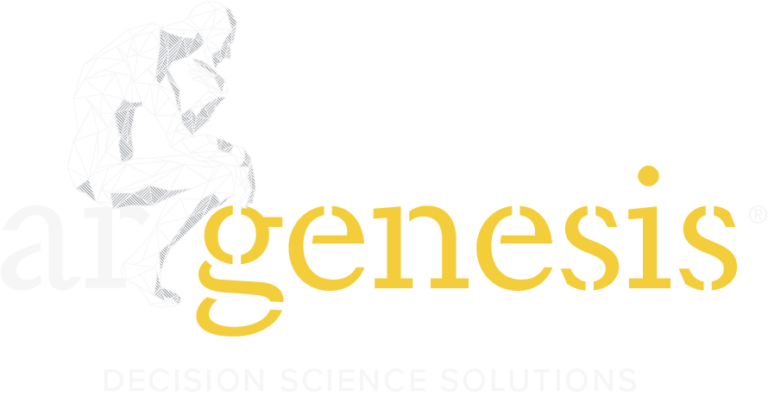 Asif John, Chairman of the IFoA’s Data Science Working Party, looks at what data scientists and actuaries stand to gain from a closer relationship.
Asif John, Chairman of the IFoA’s Data Science Working Party, looks at what data scientists and actuaries stand to gain from a closer relationship.
I work as a data scientist, developing products for clients as part of a data ecosystem called GenieUs. Behind this sits the concept of a River of Data. That both actuaries and data scientists from tech backgrounds can come to this concept and see so much that is so familiar demonstrates the affinity between the two professions.
It sometimes seems like a fantasy to think that this could be widely recognised, but the potential for people in both professions and the industries they work in is real.
Unicorns and swashbuckling techies
Innovation foundation, Nesta, noted in 2015 that the meteoric rise of what was once called ‘Big Data’ left us with the challenge of finding the right combination of technical skills, industry knowledge and soft skills to turn data into value. Their report, Analytic Britain, referred to those professionals with this mix as ‘unicorns’ – that is to say, they don’t exist.
But actuaries, often seen as a staid profession, are moving closer to this by borrowing from the data science skillset.
And though data scientists like to view themselves as something quite apart – swashbuckling researchers at the cutting edge of technology, rather than stuffy mathematicians with spreadsheets – it’s clear that they too stand to gain by borrowing from the actuarial profession.
Actuaries adapting
Actuaries have long held an eminent position in certain industries – insurance and pensions chief among them. But we all know well how the world has changed over the last two decades, with datasets of previously unimagined size and diversity, and the speedy progression of machine learning and AI.
The actuarial profession could not be unchanged by this. The potential of and the demands on the actuary’s ability to interpret and construct value from data were blown wide open.
And, led by the IFoA, the profession has started to move on this.
Actuarial science was previously about structured data and standard analyses. But now the profession has begun exploring working beyond traditional methodologies and started to learn the skills that allow them to build technological solutions and manipulate large data sets, combining structured and unstructured data, such as rich media, text, social media activity, surveillance imagery, and so on.
What data scientists stand to gain
The basic skills for data scientists are:
- coding
- an understanding of machine learning, deep learning and AI technologies
- and critical thinking
Data scientists coming from an ‘IT geek’ background often see themselves as serving a back-office function and their highly technical work is perceived by others as mysterious alchemy.
The role of the actuary, though, demands that communication, presentation and leadership skills are nurtured, with the intention of making their work understood and impactful.
The domain knowledge of the actuary has always been one of their strengths – they are industry specialists. While actuaries are having to adapt to a world in which we switch tracks in the run of our careers and learn the lay of the land in new fields, data scientists could conversely benefit from absorbing such industry expertise in the fields in which they work, thereby positioning themselves for senior strategic roles.
Data science is such a new practice. Roles and titles are ill defined, qualifications and levels of expertise are inconsistent. Associating with the ancient actuarial profession would be a move towards adopting the practices that provide actuarial clients with assurance: codes of conduct, regulatory frameworks, standardised qualifications.
The need for this was highlighted by no less an authority than the Royal Society, who also noted the need for the coming together of statistical and technical skills in data science and pointed to the need for “innovative ways to enable the development of advanced skills” in data science.
Crossing the line between data science and actuarial science could meet this need for many – most obviously for data scientists working in areas in which actuaries are long established.
IFoA Affiliate membership
As an IFoA Affiliate member, I am able to sit between the two fields, maintaining skills from the actuarial sphere and sharing my skills in coding and data analytics. Importantly, IFoA membership has also created real commercial opportunities for me.
The IFoA has now opened up Affiliate membership to a wider community – dropping old, restrictive requirements and welcoming any professional with an interest in the world of the actuarial profession.
With this, I hope that we’ll see more data scientists crossing disciplinary boundaries and reaping the rewards.
IFoA Affiliate membership – join now
IFoA Affiliate membership offers access to industry research reports, networking opportunities and online learning on the domains, analytics methodologies and soft skills which are the core of the actuarial profession. It makes you part of a global network of 32,000 data professionals.
It is now open to any professional who shares an affinity with the actuarial profession and is not in paid work as an actuary.
